By Evan Vezmar
ArtAble has had its fair share of changes during the pandemic.
Founded in 2007 and running as a nonprofit since 2010, this organization functions as an art studio and event space. However, the programs often include people with disabilities, a group that ArtAble founder Jane Elias says is “so secluded in so many ways. They’re either with their family or their day programs. And there’s not a lot of opportunity to be out and participating in the community.”
Elias, a resident of Linden Hills, says, “I’m a professional muralist. I used to travel all over the country doing murals in hospitals and clinics… Then I just did murals locally and smaller jobs, volunteered a lot at the schools. I would draw out placemats for auctions and then the kids would paint them in and we’d auction those off. It was really fun teaching the kids and working with my kids. So, I just basically started simplifying my designs and putting them on canvases to teach other people because a blank canvas is really daunting.”
After working with a business partner to create a studio that taught painting and sold canvases, Elias says that “people started coming in – like there was this woman that brought this autistic boy every Wednesday night and lots of people started coming in. And I started to notice [painting] was more of a healing, meditative thing. So, after a few years, I got a board together and we became a nonprofit and moved into a space and built it all out to make it accessible.”
ArtAble’s mission is a place for “creating high quality art programs for all abilities and disabilities,” explains Elias.
Personal connection to differences inspired Elias
She says her personal and familial experiences with disability and sensitivity have immensely impacted her role in the studio. “I have a niece that is nonverbal and in a wheelchair, and a step-niece that has a cerebral palsy. There are mental health issues in the family, so I’m very accustomed to being around people that have different abilities… That’s what we did at the studio. You would come in and there would be groups with disabilities or individuals with everyone intermingling.”
She adds, “The world is so full of lights and bells and whistles. Heightened sensitivity is not considered a disability because 20% of the population has it at some level, and it’s a blessing and a curse. I didn’t realize I had that, and I just thought I was a freak… I ended up coping by pretending I wasn’t me. And it wasn’t until I was in my 30s that I read about and realized there were other people like me. So, I wanted to create a space where it’s nice and calm. I play nice, soft music with all natural light. There’s so much to cope with in this world, and it’s just getting worse so we need a space like this again.”
Uniting community across difference
ArtAble doesn’t just provide spaces for people with disabilities. Elias emphasizes the need for community and unity across all abilities.
She says, “Once a month we would do pizza parties, where I would invite 20 people from our day programs with disabilities and 20 people from the greater community, from a church or business. So, they would come together and have people pair up. We’d have lunch together and paint together and a celebration of everyone’s achievements. And I heard over and over from people that don’t have disabilities saying, ‘I’ve never been around so many people with different disabilities and how rewarding it is to communicate with somebody even if it’s nonverbal.’ Just sitting with somebody and eating and painting is a really cool thing.”
Because of the pandemic, ArtAble stopped hosting frequent pizza parties, but Elias hopes to bring the community events back to complement other events ArtAble participates in.
Elias adds, “We always do Linden Hills festivals where we have a big tent and we will set up our studio. We’ve partnered with Joyce [Uptown] Food Shelf, and we’ll have people bring in non-perishable food items and make a huge food sculpture out of them… I love to bring in another nonprofit to work with them and we do a lot of community outreach. It’s a real community draw to bring people together.”
Elias highlights ArtAble’s work with other nonprofits as a successful way to help the Minneapolis community and to garner support for organizations that benefit people with disabilities.
Impacts of COVID-19 on studio
Before COVID-19, ArtAble would do up to eight birthday parties in a weekend, drop-in paint hours, 12 weeks of small summer camps, and after-school art club. She says, “A lot of our kids had special sensitivity needs like autism and OCD. So, we kept the classes small, with two teachers for 12 students and everyone got a lot of personalized attention.”
However, COVID-19 played a role in the changes that have affected ArtAble in recent years. The studio that was on 54th and Nicollet closed, and currently ArtAble is without a permanent location.
When the studio stopped in-person events in 2020, Elias says, “We started making kits. So, we would send to individuals’ homes and we did Zoom and painted with that. We were able to do summer camps that year. We gutted the studio, had 12 kids at a time, wore shields and masks, and spread the tables out. But by the fall, we weren’t bringing in any money so it didn’t make sense. So, we closed up and briefly moved to a little shop in Linden Hills.”
The studio was unsuccessful in retail so Elias and her organization worked with a church. However, Elias explains that “in the end, [the church] ran it like a large corporate business and our brand and model did not fit in. So, now we’re being very cautious about where we move, but still exploring the idea of moving in with another nonprofit or religious institution.”
Collaboration with various nonprofits inspires community, hope for future
In addition to outreach with other nonprofit groups, ArtAble works monthly with Abbott Northwestern Hospital in the mother-baby center to paint with mothers on bed rest. Because ArtAble does not currently have a permanent location, Elias explains, “We’ve been going to these other organizations, day programs, and it’s been really fun to see my people out in the community.”
While ArtAble is aiming to bounce back from several years of setbacks, Elias stresses that the studio will continue to help people with disabilities and share how the organization works to create a more welcoming community for individuals of any ability.
Elias remains positive about the studio’s mission and outlook and says, “Almost all of the employees that work at the studio have disabilities and so we always talk about disability pride. Because it’s our differences that make things unique and beautiful.
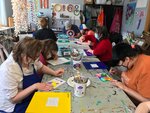
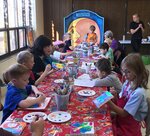
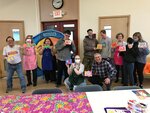
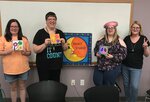

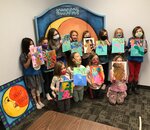
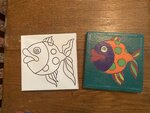
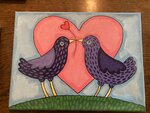
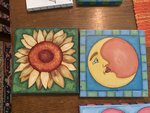
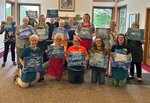

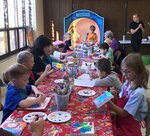
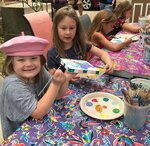
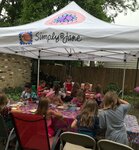
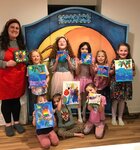
Comments
No comments on this item Please log in to comment by clicking here